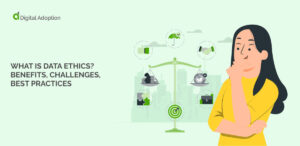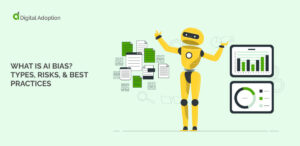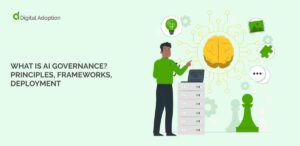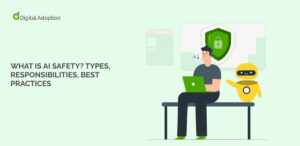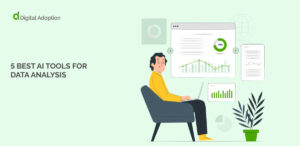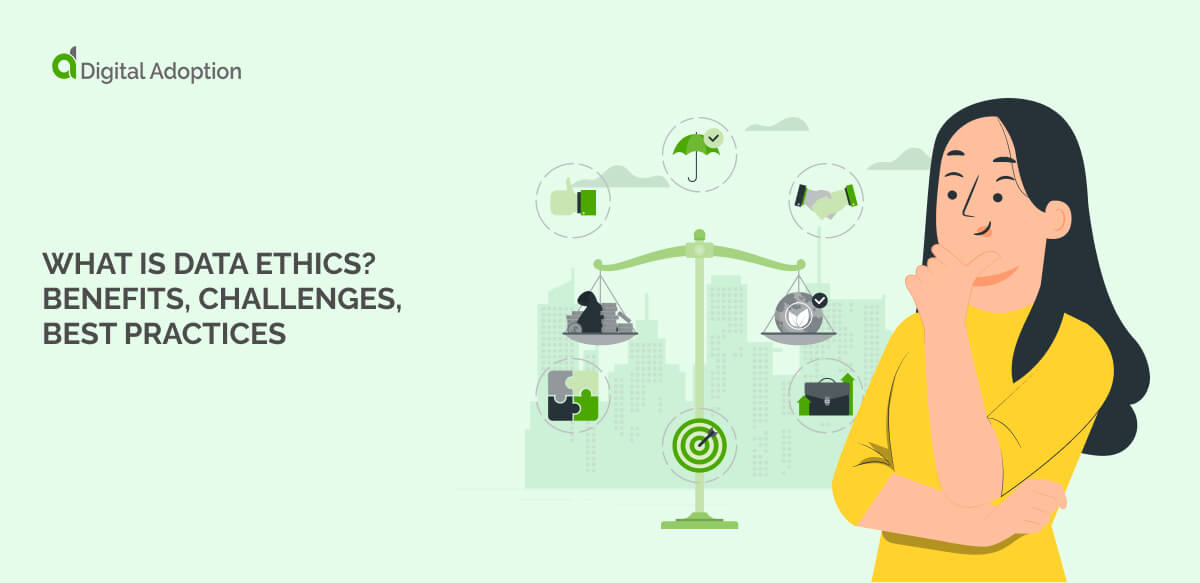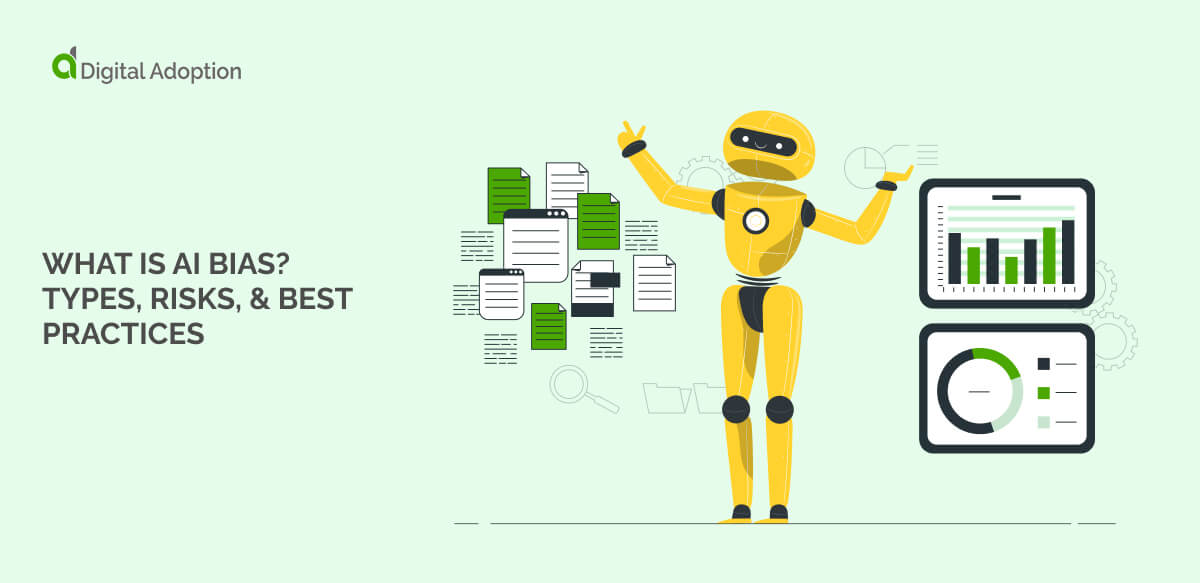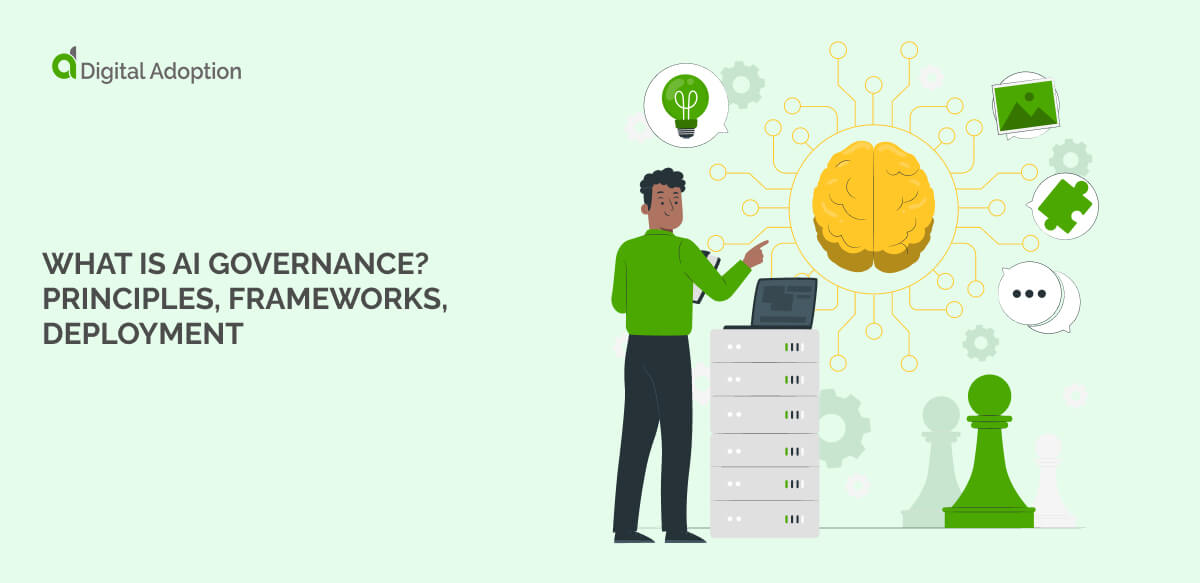In this quick guide, we’ll learn some of the most common digital adoption manager interview questions, along with answer guides for each question.
First, though, it is important to clarify what digital adoption managers do, since this role is relatively new.
Digital Adoption Manager: A Brief Job Description
Digital adoption managers, as the job title suggests, manage and implement an organization’s digital adoption efforts.
Duties often include:
- Implementing new software platforms (such as salesforce)
- Designing employee training programs
- Monitoring and improving product adoption efforts
- Collaborating with IT, HR, and relevant departments to design business processes
- Enhancing the digital employee experience
Effective digital adoption can have a number of positive impacts, improving employee performance, product value, software ROI, and more.
Reasons such as these are compelling many businesses to create this job position, but since it is so new, job responsibilities can vary a great deal from company to company. Below, we’ll explore some of these questions and answers in more detail.
Digital Adoption Manager Interview Questions
Here are a list of digital adoption manager interview questions to plan for:
- How do you define digital adoption? Full digital adoption means achieving a state where software users attain complete productivity and proficiency with digital tools – that is, they can use those tools for their intended purpose and to their fullest extent. Without achieving this, employee skill levels can easily stagnate and they will never fully realize the value of their products.
- What does digital transformation mean to you? Digital transformation refers to the adoption of new technology, as well as digital business practices, processes, and culture. Digital adoption plays a key role in transformation, which cannot succeed without a successful adoption program.
- How will your experience and your skills help you succeed in this position? Interviewees will naturally bring a unique set of skills and experience to the table. It is useful to focus on interpersonal skills, data skills, technology skills, and an interest in education and training. By demonstrating achievements and abilities in this area, candidates can show that they have what it takes to succeed in this role.
- What is your approach to measuring and improving adoption programs? Digital adoption, like every other other business function, should be measured and continually improved. Software analytics, such as those implemented within a digital adoption platform (DAP), can be instrumental in understanding employees’ training needs. That insight, in turn, can be used to improve digital onboarding and training efforts.
- What is your approach to employee training? Training plays a crucial role in the modern enterprise, since employees must continually learn new software and workflows. Yet many traditional training approaches are ineffective, too costly, and they cannot be scaled. Modern training approaches, such as digital adoption solutions, provide just-in-time training directly inside the app, keeping employees productive and engaged.
- What role does culture play in digital adoption? Digital adoption managers deal as much with people as they do with technology. Therefore, they are expected to work with the employee experience, corporate culture, communication, and so forth. Digital culture refers to a workforce’s values, beliefs, and ideas, which often impact attitudes towards technology. Digital-friendly cultures adopt new technology easily, for instance, which is why this should be emphasized in the modern organization.
- Please provide examples of your most successful digital initiative. As with several other questions listed here, this one is aimed at assessing several things: capabilities, decision-making skills, and one’s approach. It is address those things specifically, by describing how decisions were carried out, the rationale behind those decisions, challenges that were overcome, and the outcomes of the initiative.
- What are your personal career goals? Everyone has personal career goals. Yet when answering this question, it is always useful to bear in mind that the organization is self-interested. Interviewers, therefore, will want to make sure that the interviewee’s goals align with the organization’s goals.
- Why do you want to work at our organization? Cultural fit is another important area that interviewers will focus on. This type of question will help clarify whether the interviewee is a fit for the company, its values, and its mission. Candidates can earn points by highlighting those overlaps, rather than strictly focusing on personal goals and ambitions.
- How do you maximize digital product value? Product value depends on several things, such as employees’ attitude to digital technology, their digital savvinesss, as well as onboarding and training. To maximize product value, digital adoption managers should take a comprehensive approach that implements all of these elements. Such an approach will improve employee performance, which will ultimately improve the product’s bottom-line ROI.
This set of questions is certainly not comprehensive.
However, they offer a glimpse of what job seekers can expect when interviewing for a digital adoption manager position.
Proper preparation – such as answering these questions out loud or writing down answers on one’s own – can make the interview process go much more smoothly. When answering questions beforehand, there will be much less need to formulate answers on the spot, which can cause hesitation or unsatisfactory answers.




